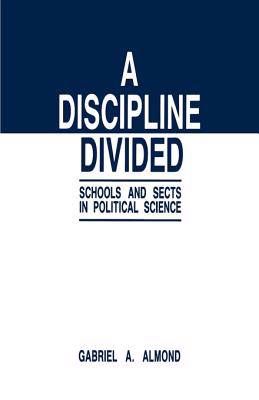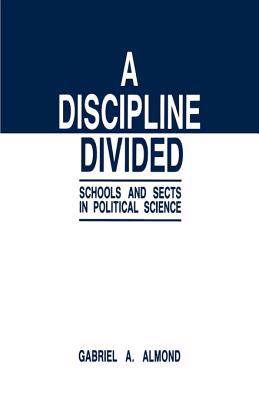
- Retrait gratuit dans votre magasin Club
- 7.000.000 titres dans notre catalogue
- Payer en toute sécurité
- Toujours un magasin près de chez vous
- Retrait gratuit dans votre magasin Club
- 7.000.0000 titres dans notre catalogue
- Payer en toute sécurité
- Toujours un magasin près de chez vous
A Discipline Divided
Schools and Sects in Political Science
Gabriel Abraham Almond
Livre broché | Anglais
216,95 €
+ 433 points
Description
In this collection of essays, eminent scholar Gabriel Almond describes the ways in which the discipline of political science has become divided against itself. "The various schools and sects of political science," writes Almond, "now sit at separate tables, each with its own conception of proper political science, but each protecting some secret island of vulnerability." In his overview, Almond examines the "hard" versus "soft" science approaches, as applied by scholars of both the left and the right. In Part I, he explores the history of model-fitting in communism studies, the strengths and weaknesses of the rational choice movement, and the historical forces and processes that have shaped political culture theory. In Part II, Almond addresses the problem of the transmission of methods and findings within the discipline. He discusses the current emphasis on pluralism among political theorists in Communist countries while a corresponding devaluation of this concept is occurring in the West. He concludes with an evaluation of the neo-statist movement and the evolution of political development studies. With this book, Professor Almond crowns a lifetime achievement, and makes final his case for the study of political culture. "It is a most interesting book. For what it′s worth, I think this book will be a successful one. This is not because of the talent and eminence of the author, but because I think there are lots of political scientists who will enjoy reading about these continuing struggles. In sum, I think the book will be a hit." --Aaron Wildavsky, University of California, Berkeley "Judged by the breadth of his professional knowledge and the depth of his command of the literature, Gabriel A. Almond is the most learned political scientist of today. In these wise and erudite essays he provides careful documentation of where the discipline is and what those who went before really said. Hereafter, no graduate student should feel prepared for general examinations in any field of political science without carefully reading A Discipline Divided, and taking to heart its lesson that getting the record straight is a necessary foundation for advancing social science knowledge." --Lucian W. Pye, Massachusetts Institute of Technology "Who better to provide a prospect and retrospect on the social sciences than a 1938 University of Chicago Ph.D.; a pupil of Frank Knight, Harold Lasswell, and G. H. Mead; and a fellow graduate student with Herbert Simon, George Stigler, Edward Shils, V.O. Key, and others? This book shows that he is still a pioneer in the social sciences, and even prepared to explore ideas that are nowadays fresh because they have been around so long that they are forgotten. The result is a book that is of interest to every social scientist." --Journal of Public Policy
Spécifications
Parties prenantes
- Auteur(s) :
- Editeur:
Contenu
- Nombre de pages :
- 352
- Langue:
- Anglais
Caractéristiques
- EAN:
- 9780803933026
- Date de parution :
- 01-11-89
- Format:
- Livre broché
- Format numérique:
- Trade paperback (VS)
- Dimensions :
- 141 mm x 218 mm
- Poids :
- 498 g

Les avis
Nous publions uniquement les avis qui respectent les conditions requises. Consultez nos conditions pour les avis.






